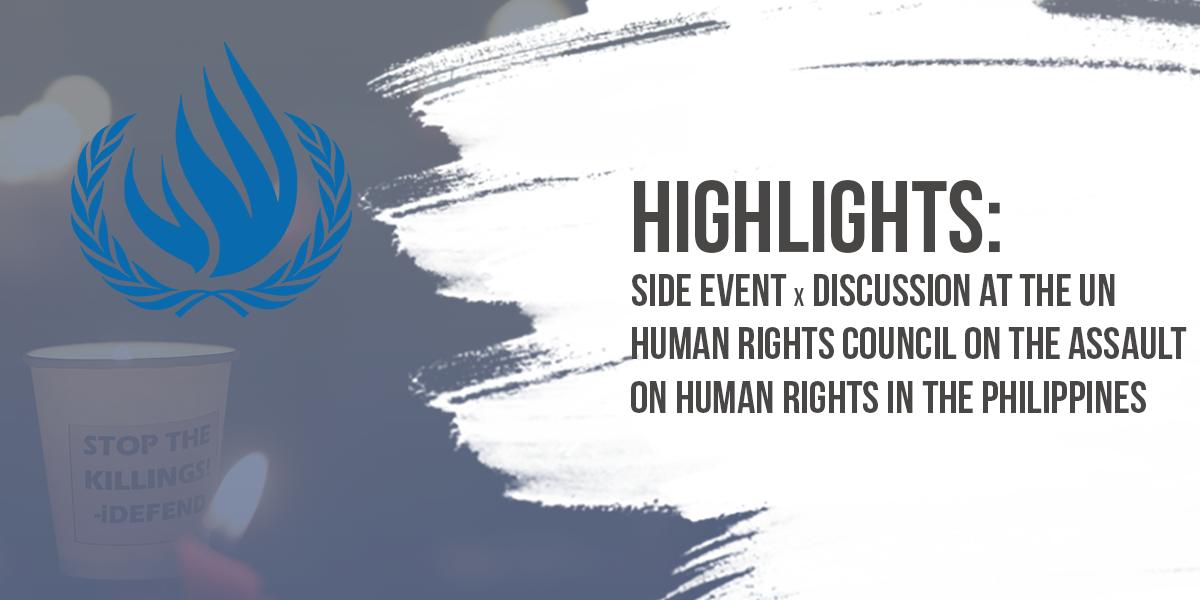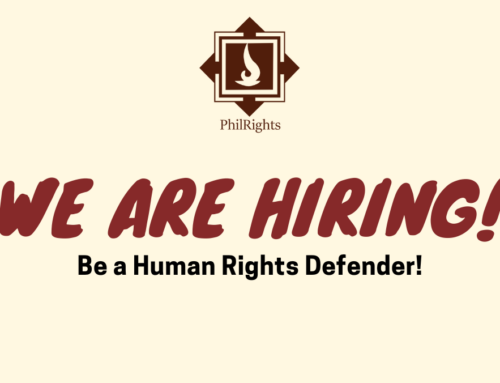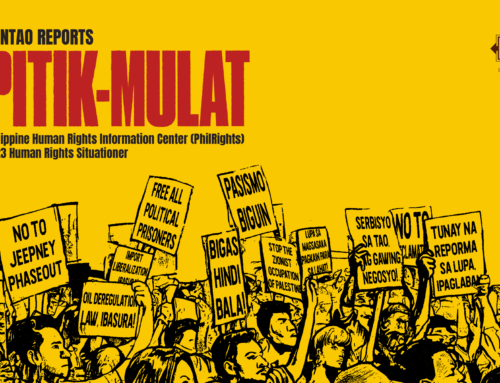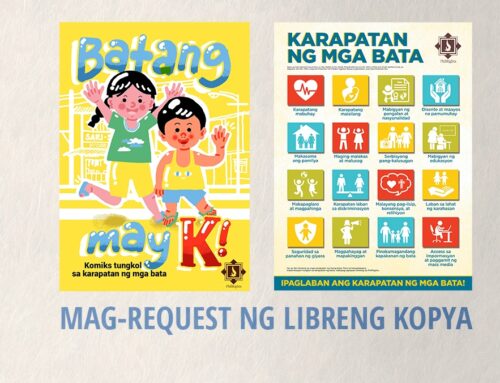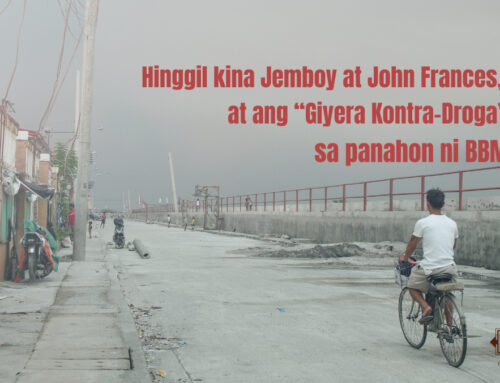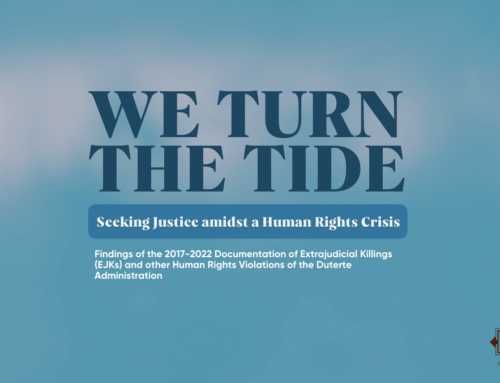by Wyanet Alcibar
Civil society organizations call on the international community to help end the assault on human rights in the Philippines
Human rights organizations convened via Zoom last month for a side event at the 47th regular session of the United National Human Rights Council (UN HRC). The event was organized by FORUM-ASIA, Franciscans International, Philippine Alliance of Human Rights Advocate (PAHRA), and Fastenopfer.
The assembly was held in light of continued human rights violations in the Philippines despite the UN HRC’s 2020 resolution to extend technical cooperation and capacity building to promote and protect human rights in the Philippines.
The organization representatives discussed the state of human rights in the Philippines and zeroed-in on the systemic attacks on active citizens and the poor.
The War Against Human Rights and Human Rights Defenders
Professor Nymia Pimentel-Simbulan, executive director of PhilRights and chairperson of PAHRA, described the Philippines as being in a “state of war,” explaining that the ongoing wars on drugs, terror, and on COVID-19 have essentially been a declaration of war against human rights.
She delved into issues such as the assault on human rights defenders, the militarization of the bureaucracy, the culture of violence and impunity, the silencing of dissent, and the government’s weaponization of laws and issuances.
The Violation of Economic, Social & Cultural Rights in Marginalized Groups
Beyond human rights defenders, vulnerable groups have been negatively impacted by the war on human rights. Joseph Purugganan of Focus on the Global South, recalled how the Duterte administration has been complicit in human rights abuses perpetrated by corporations in the killings of indigenous peoples and farmers, the aggressive push for infrastructure projects, and the impunity of mining companies.
“These attacks and threats come from corporations that are able to use the legal system to undermine people’s rights,” he said. “Corporations have managed to secure court orders that lead to the demolition of houses and displacement usually in connivance with local and national government officials.”

The Impact of the Drug War on Children
Rowena Legaspi of Children’s Legal Rights and Development Center (CLRDC) emphasized the plight of children in the drug war. Not only have poor children been orphaned as their parents become victims of extrajudicial killings, but they have also been targeted and killed by state forces with impunity.
“In more than one hundred cases of children killed, there was only one conviction,” said Legaspi. “The blatant disregard by the authorities [of] any due process under rule of law leads the population— especially those living in poverty— to lose their faith in the criminal justice system.”
The Failure of Accountability Institutions
Local accountability institutions have failed to investigate human rights abuses under the Duterte administration. As an example, Atty. Gilbert Andres of the Center for International Law (CenterLaw) cited the Department of Justice (DOJ)’s difficulty in filing complaints against officers who committed killings under police operations.
President Duterte has encouraged a culture of impunity by refusing to release drug war records to the DOJ on the basis that certain information must be kept confidential for the sake of national security. However, Andres explained that the Supreme Court has ruled that drug war records are not a national security concern.
Andres highlighted the importance of the international community in applying pressure on Philippine authorities for the investigation of human rights abuses.
The Structural Realities Encouraging the Drug War
Ellecer ‘Budit’ Carlos, secretary-general of PAHRA, concluded the discussion by highlighting the structural realities that have allowed human rights atrocities to take place under the Duterte administration. Carlos called out Duterte’s violent approach to the drug problem as an instrument for his authoritarian regime to gain popular support. “Duterte has no genuine intention to resolve the country’s drug issue,” he said.
Carlos deemed the so-called drug war in the Philippines as an international moral obligation, as structural violence has become a global experience due to the worldwide trend of rising populist sentiment.
Calls for an Investigation
During the 16th HRC 47 Plenary Meeting, 20 national and international organizations— including PAHRA— issued a joint statement calling on the Council to act effectively on previous resolutions, and to launch an independent investigation on the lethal war on drugs.
Watch the full joint statement here.



